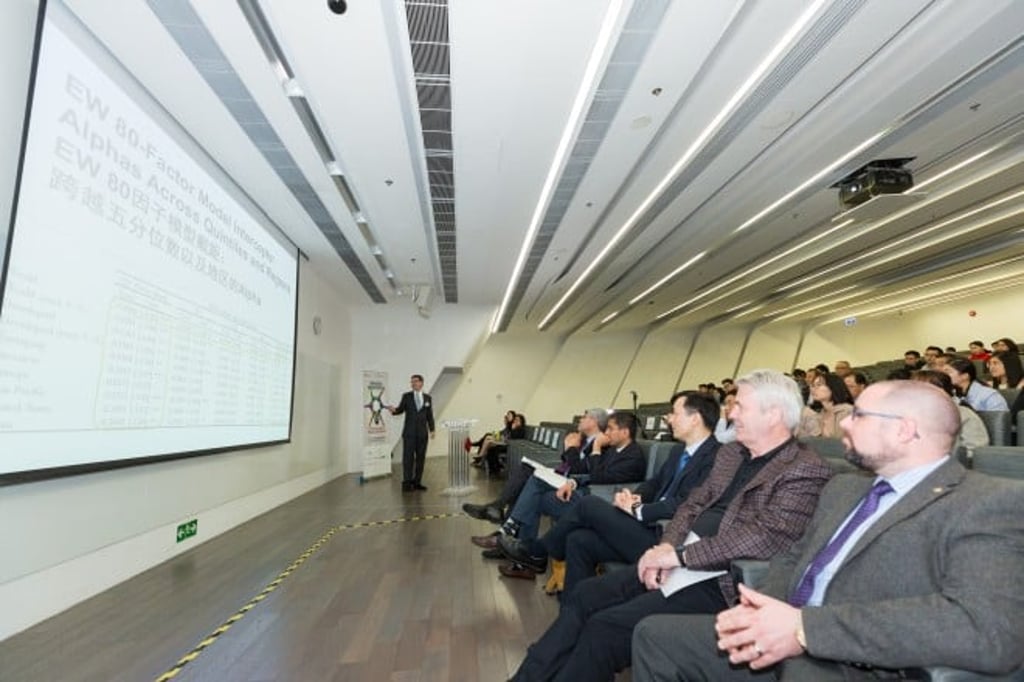Star professors inform and inspire at PolyU forum
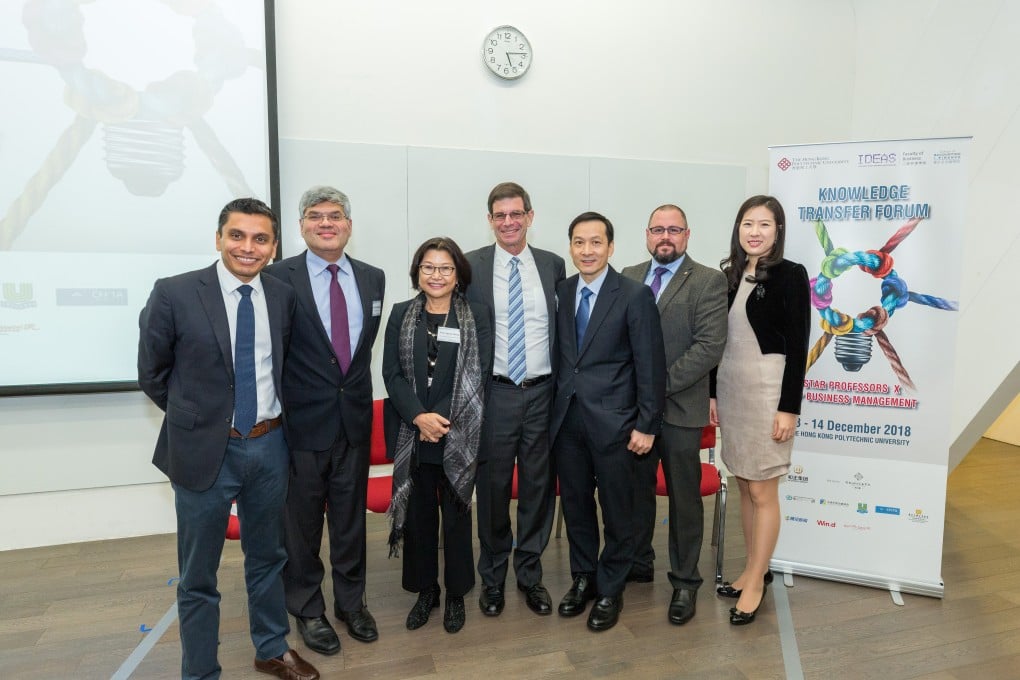
[Sponsored Article]
The Hong Kong Polytechnic University (PolyU) had a very clear objective when planning its high-profile Knowledge Transfer Forum, which kicked off on 13 and 14 December 2018.
The main aim of the series, which will continue over the next few months, is to provide a platform for eminent scholars from around the world to share theories, learning and insights with leading members of the business community. And the quality of the presentations, panel discussions and feedback from participants at the initial event proved both eye-opening and inspiring.
Built around the theme of “Star Professors x Top Business Management”, the various sessions introduced unique academic research with possibly far-reaching implications.
Importantly, the speakers were able to draw on their real-world consulting experience to suggest ways in which companies operating in China - and further afield - could benefit by applying theory in practice.
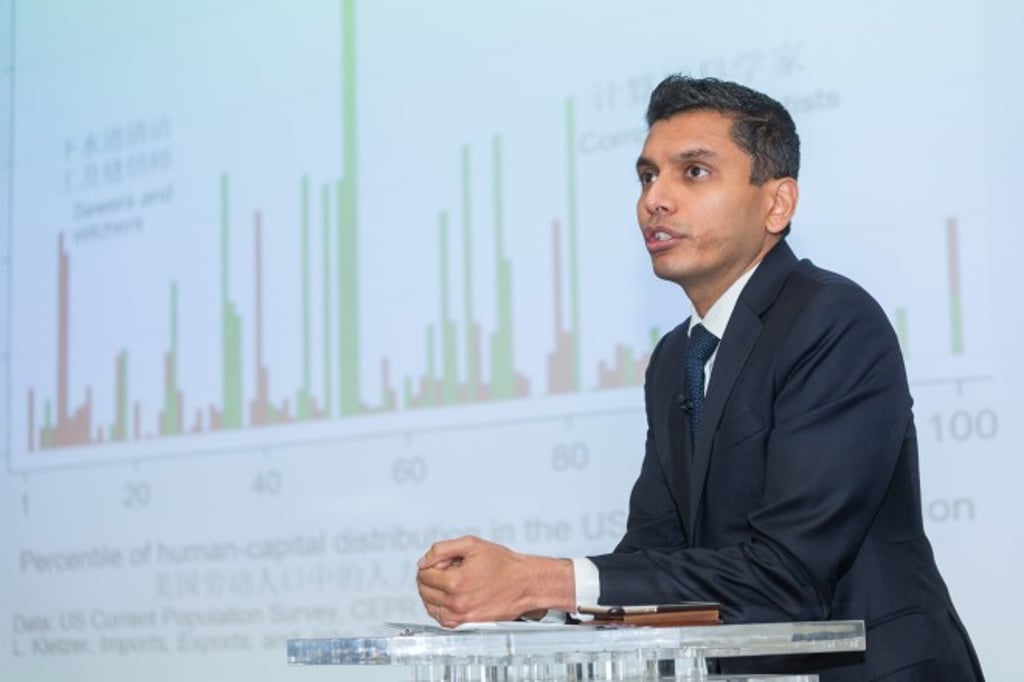
In this way, the forum sought not just to generate instructive exchanges, but also to promote potential partnerships between academics and business leaders. By doing so, knowledge and research can be more readily translated into commercial applications which, ideally, will open to the door to further economic and social development.
In his lecture, Professor Mark Grinblatt of the UCLA Anderson School of Management looked specifically at “Efficient and Inefficient Pricing of Stocks in Markets around the World”.
He explained his research findings about an equity trading strategy derived from a mechanical measurement of fair value and deviations from it. This approach can provide useful buy-sell trading signals for active portfolio managers, allowing them to take advantage of mispricing to find investment opportunities around the world, which might otherwise be overlooked or neglected.
Historically, many instances of the greatest mispricing of assets have been found in markets in Asia.
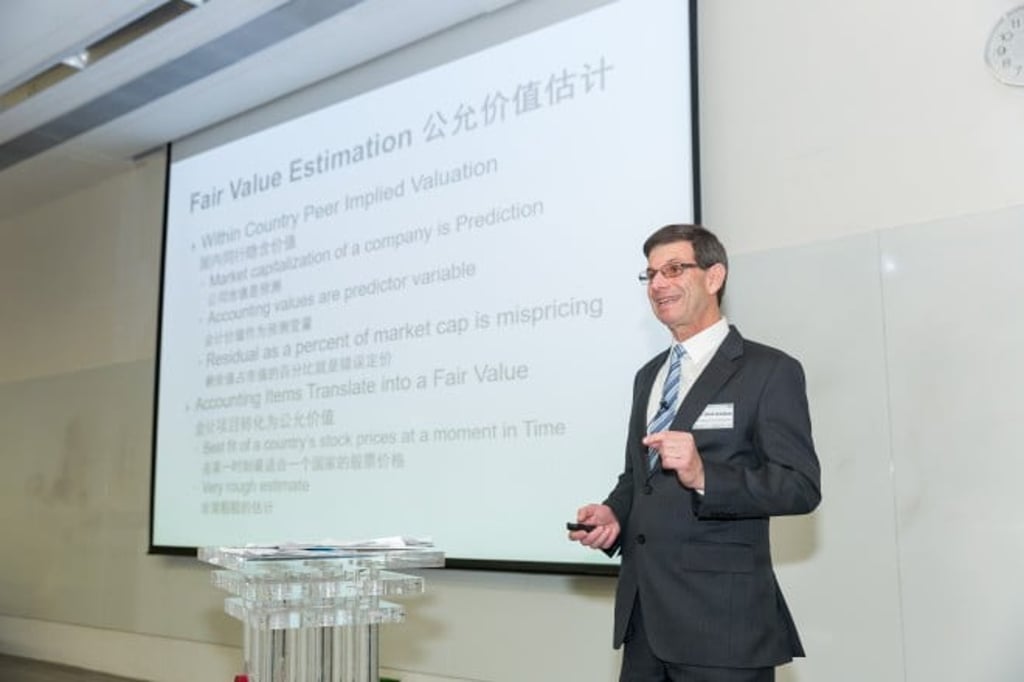
“We try to assess with the computer every stock in 36 countries that an institutional investor might be interested in and estimate fair value each month,” Grinblatt said. “We can rank the order of stocks that are most under- and overvalued. But the proof of the pudding is if it actually generates profitable trading from active management.”
Following on, Professor Shiva Rajgopal of Columbia Business School in New York examined principles of smart investing from a different angle. His presentation, “Looking Under the Hood: Fundamental Analysis Done the Right Way”, put particular emphasis on how rigorous, detailed analysis of financial statements helps in gaining a much better understanding of a firm’s costs for everything from materials and labour to capital and managerial talent.
With that information, it is then possible to pick out companies which are good choices for value investing – and to do so with a greater degree of confidence.
“A deep understanding of these value drivers is crucial to assessing whether a company’s earnings are sustainable in the long run and whether its stock is correctly priced,” Rajgopal said. “Financial statements rarely disclose all the costs needed to outpace competition,” but he showed how the information can often be found from other sources.
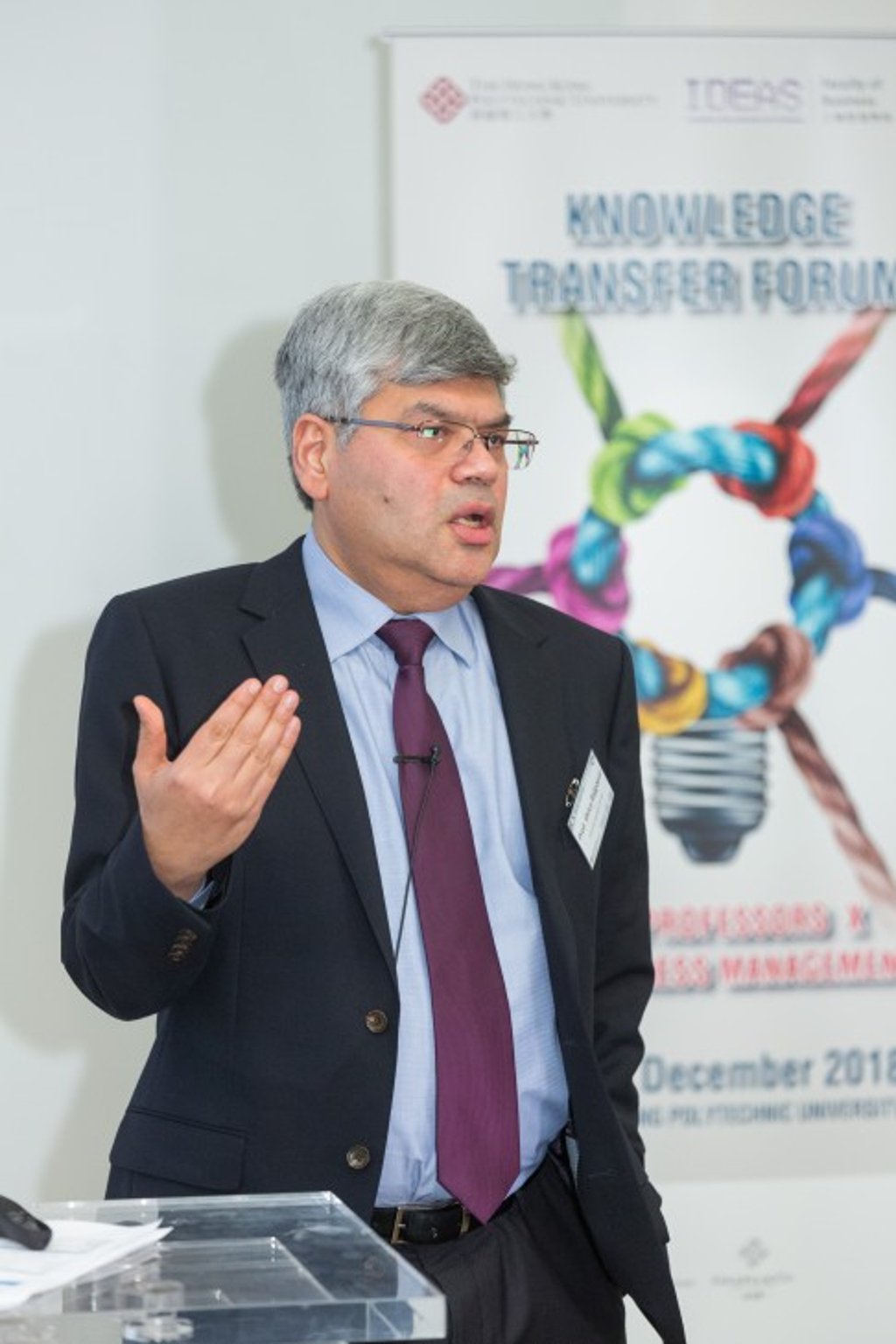
For Professor Karthik Ramanna of the University of Oxford’s Blavatnik School of Government, who addressed the question of “Economic Nationalism in the US: Causes and Implications for the US-China Trade War”, it was clear that global market liberalisation had brought some unexpected consequences.
He pointed out that the US has traditionally been synonymous with free markets. Today, though, we are seeing the effects of nearly 40 years of wage stagnation or decline for the lower third of the working population. Automation and global competition are adding to that, as is the general failure to “up-skill” employees and equip them adequately for changing roles.
The result in the US is a retreat towards economic nationalism, greater inequality and political extremes. But these developments have obvious ramifications for China and other developing nations. And the leaders of multinational businesses must also find a way through.
“Wage stagnation is now affecting the mid-section of the percentile range [in the US]; it is creeping up,” Ramanna said. “Economic nationalism provides short-term fixes for problems, but what’s needed is structured investment to up-skill, and to fundamentally rethink education and the power and capacity of government to reorder markets.”
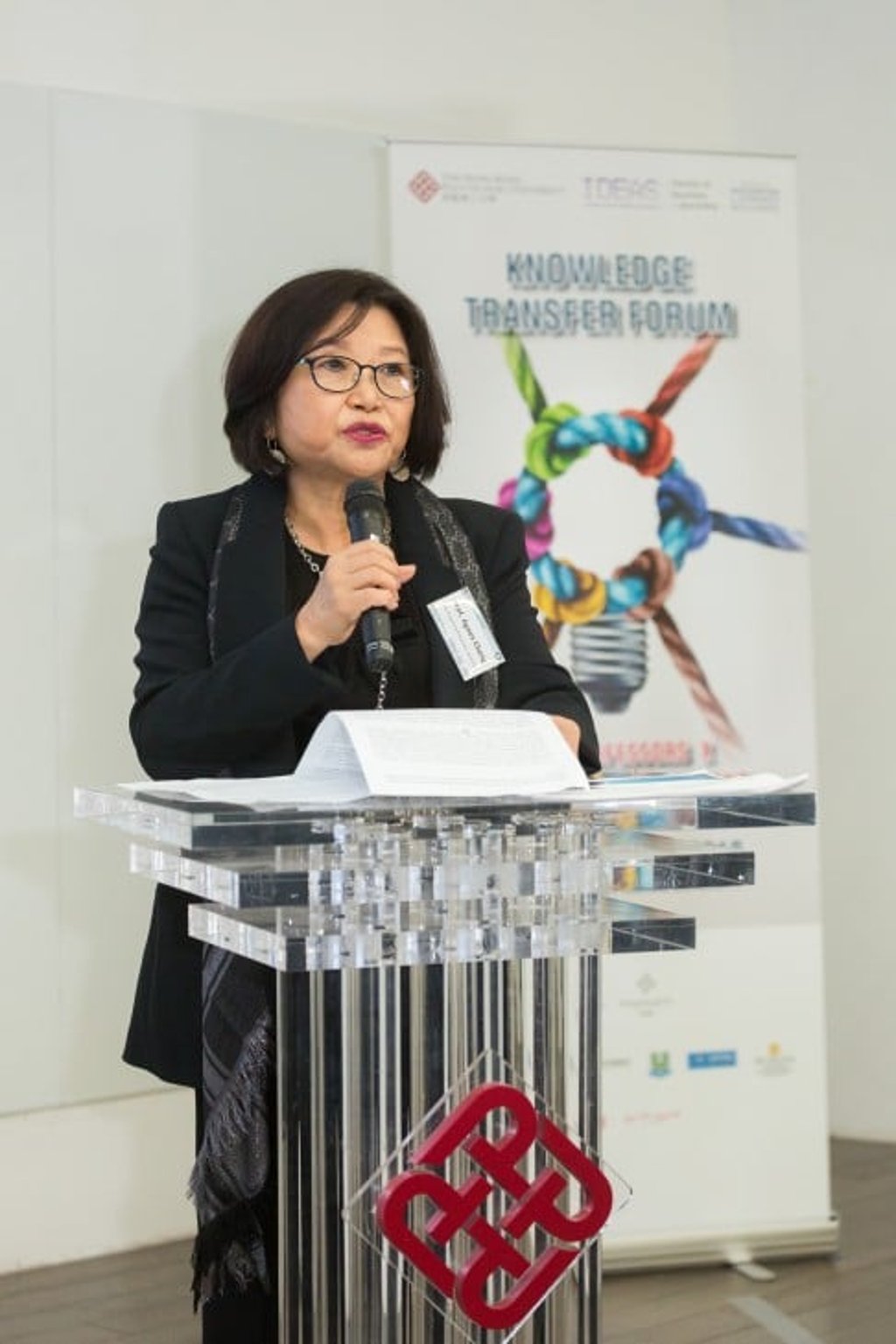
Other presentations and discussions over the course of the two days featured research related to accounting and finance by PolyU faculty members. There was, though, also more general debate about issues and concerns such as climate change, cyber security, corporate social responsibility, and alternative investment strategies.
Reflecting on the importance of all these topics, Professor Agnes Cheng, head of PolyU’s School of Accounting and Finance, noted that the growing number of large-scale Chinese firms with extensive international links will face multiple challenges amid keen global competition. However, greater awareness of the latest academic research and expert opinion can help them prepare for change, plan strategically, and catch up where necessary.
“The aim of the forum is to bridge that gap,” Cheng said.
Besides all those able to attend in person, the event also reached a 100,000-strong real-time audience via live streaming.
Upcoming conferences in the monthly Knowledge Transfer Forum series will focus on significant topics like Belt and Road financing, smart city governance, port coordination in the Greater Bay Area, and the impact of technology on finance, accounting and the regulatory environment.
